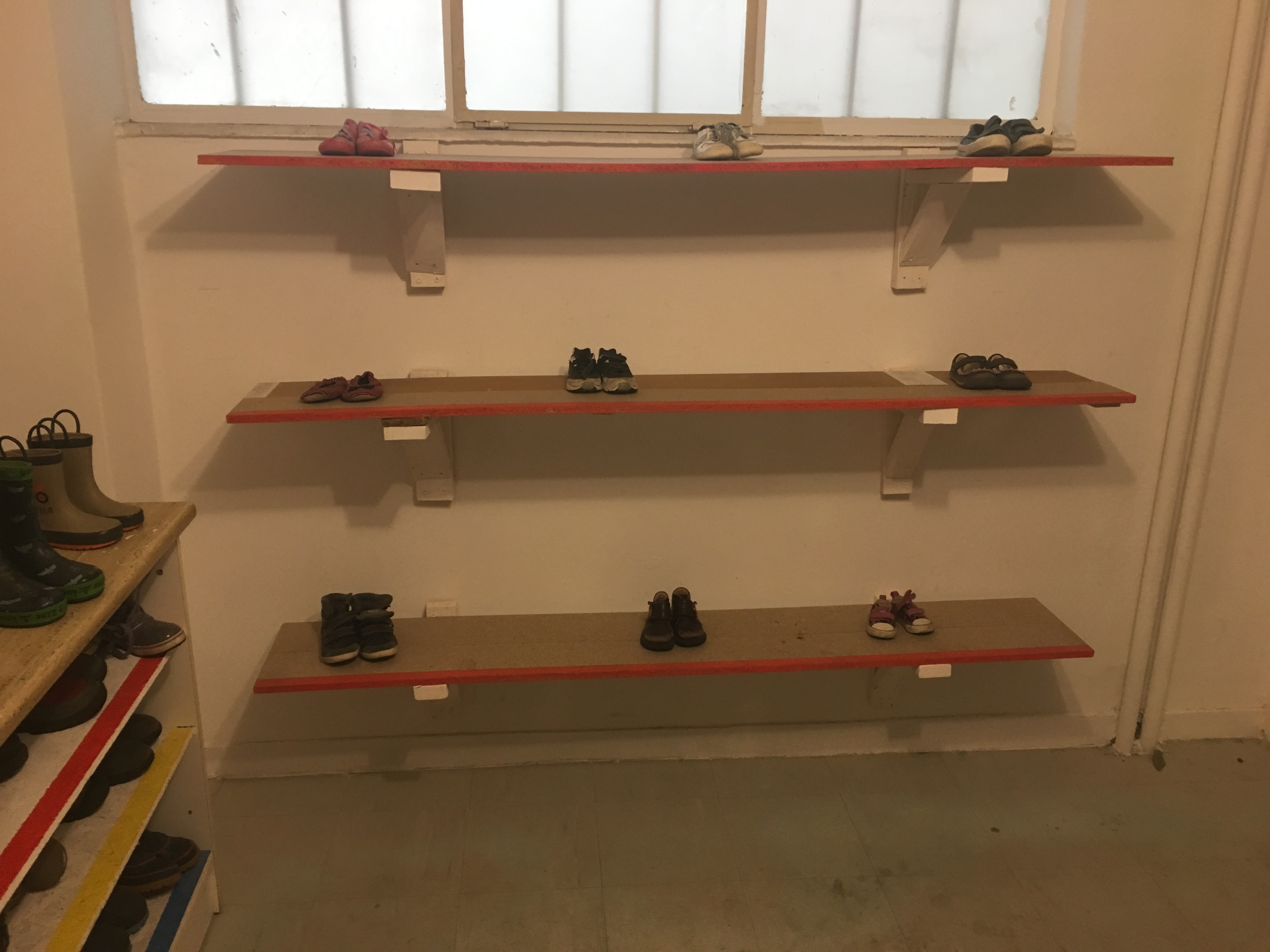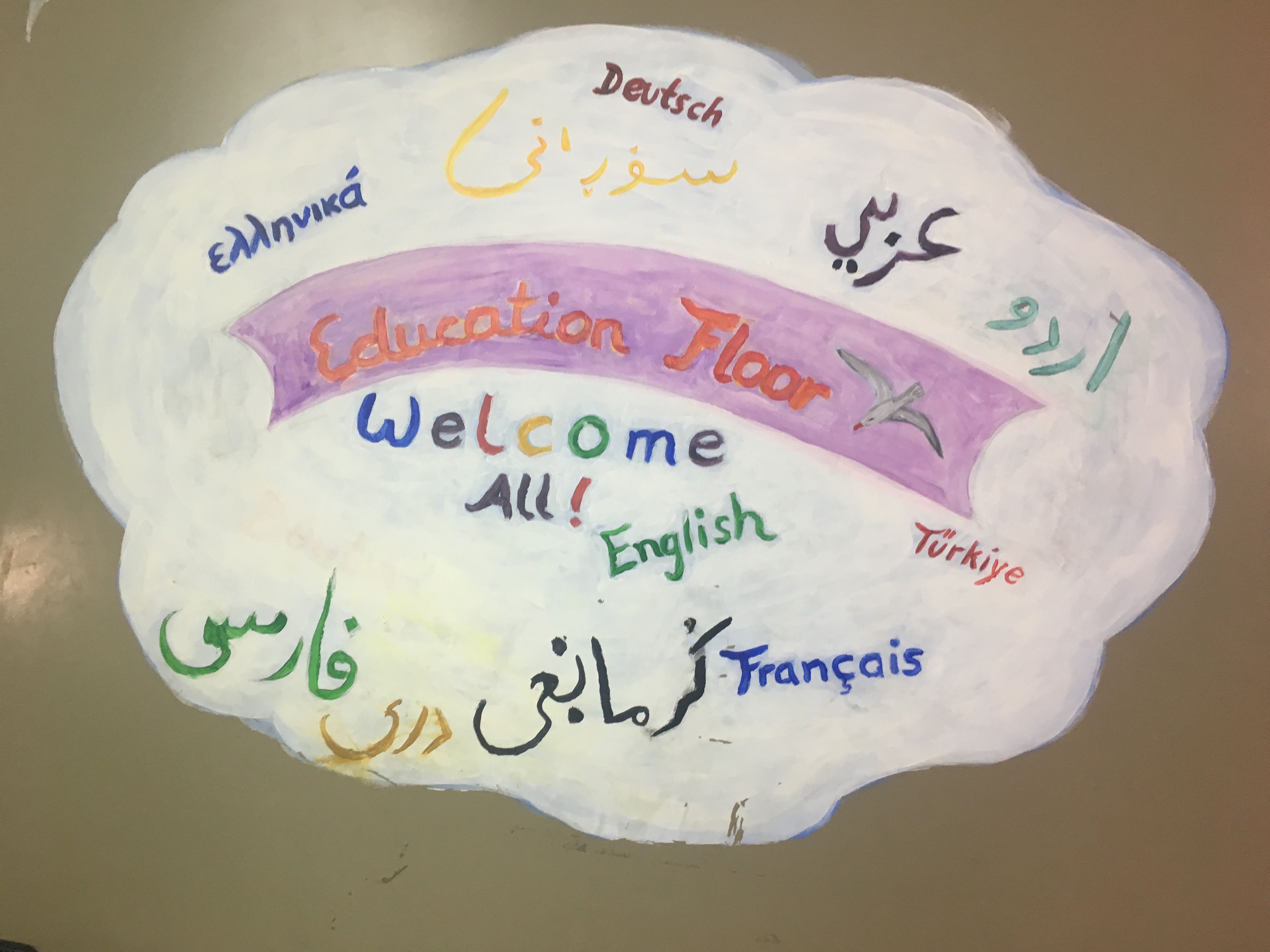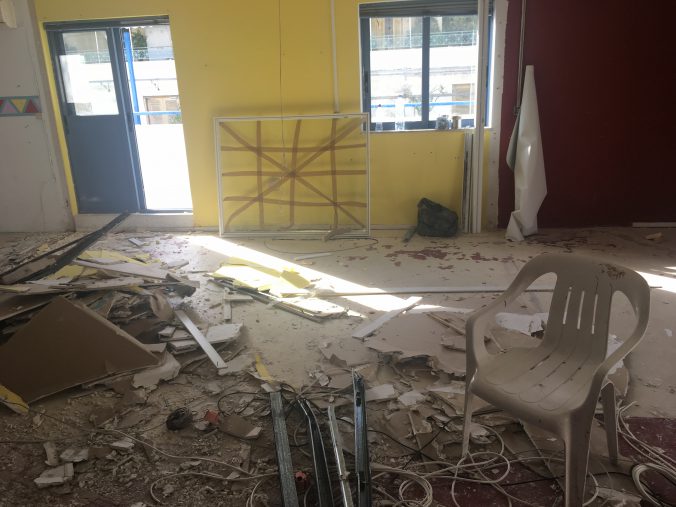By Isaac Wolfe
ATHENS, Greece – As the sun set over Mount Lycabettus, a six-story building in the neighborhood of Exarcheia was still brimming with activity. Volunteers at the Khora Community Center shuffled in and out, towing boxes of toys, chunks of drywall and demolition tools as they prepared the center’s equipment for its next move: into storage.
Khora, a volunteer co-operative for migrants, has undergone many changes in its short life. Since the group was formed in 2016 by activists on the island of Lesbos, Khora has evolved continually to keep up with the people it serves.
“Khora is well-known in the squats and camps. People know our name and know to come here to find help,” said Hudson McLane, a 20-year-old volunteer from the United States. McLane, like many of his colleagues, arrived at Khora after unsatisfying experiences at other relief services. “Our goal is to give people a sense of dignity,” he said.
Dignity has proven a rarity for the thousands of refugees funneling into Greece. UNHCR, the refugee organization of the United Nations, reports that more than 12,000 people have arrived in Greece in by sea in 2018 alone, further burdening to the overworked and undersupplied camps and organizations working there since 2015. The numbers, however, belie the true magnitude of the situation, as they represent only those people who officially registered as asylum-seekers and who meet certain other requirements.
 Khora is unusual in that it is a volunteer organization funded entirely by individual donations, freeing it from the requirements and bureaucracy that hamper many large non-governmental organizations and government-operated groups.
Khora is unusual in that it is a volunteer organization funded entirely by individual donations, freeing it from the requirements and bureaucracy that hamper many large non-governmental organizations and government-operated groups.
Khora’s building itself is a testament to its philosophy and history. Throughout the rooms that are currently stripped bare and packed up for storage, there are hints of the many activities once featured. Brightly painted butterflies adorn the walls of what used to be the Kids’ Space. The floor of one large room bears scuffs from dragged desks and chairs – leftovers from the classrooms teaching English, Greek, and many other languages for free.
Other spaces hosted music classes, yoga sessions, martial arts instruction, legal advice, building workshops and other services to provide both practical help and peace of mind to struggling and displaced people. “We’re a one-stop shop,” said McLane.
One of the only rooms of the center still in operation as the move commences is the kitchen. In its prime, the kitchen would serve up to 800 hot meals in a day, but for now it is focused on producing food packages to hand out while the center is in transition.
The area directly next to the kitchen is called the “café” rather than a “food hall” or “distribution area” because Khora wants the meals they serve to be more than a factory-like operation. “We had a couch and tables so that this could be a room for a community,” said McLane. “I never saw it empty while we were open.”
This unique balance between providing emergency relief and a community experience is not an accident. Khora’s band of volunteers deliberately designed their services this way, attempting to infuse humanity into every one of its initiatives. Other government-run camps and large NGOs struggle to achieve this level of service, often leading to poor conditions and a flagging sense of hope.
“A lot gets lost in the bureaucracy,” McLane said.
Khora was designed as a consensus-based organization – there’s no established “leader” of the of the group of volunteers. “We have horizontal leadership,” said McLane. “We have large group meetings and smaller working group meetings where we discuss what we’ve been doing.”
And the volunteers themselves are a diverse group, ranging from travelers from far-flung places like Canada, Belgium, Cameroon and Iceland. They also include people who entered Greece as migrants and refugees themselves.
Rizwan is a volunteer from Pakistan who came to Greece as an asylum-seeker. He spent time at the Moria Camp on Lesbos and participated in several humanitarian groups, but found many to be lacking. At Khora, he involves himself with many of the services, including the Free Shop that provides clothing and other products to people in a marketplace setting. “Khora is the best for me,” Rizwan said. “It does the best work of all the groups I’ve worked with.”
The open policy toward volunteers extends to the people offered services. Khora does not require anyone to supply documentation to receive help. When the building was in operation, its doors were always open and anyone could walk in, no proof of government-assigned status required. “There are enough places that require documents to get in,” McLane said standing in front of what used to be the information desk. “We don’t ask for those.”
While Khora looks past the legal requirements demanded by many larger groups, unlike some groups it remained dedicated to operating fully within the law. Khora is pursuing licensing for all of their services, and the recent end of its lease sparked a search for a new legal home, not a “squat” in an abandoned building.
As Khora searches for a new community center, its volunteers are busily dismantling and storing its equipment.
This commitment to Greek law does not always help Khora’s relief efforts. Greek law and international regulations are notorious for inhibiting humanitarian work with refugees. “The fact that there are squats and anarchist demonstrations show that the legal avenues are not doing enough. They are filling a need,” McLane said.
Despite these challenges, Khora maintains committed to offering aid while promoting community. And its eyes are on the long term. McLane says: “We want Khora to outlast the refugee crisis. We want to keep helping people.”
For now, Khora is focused in the task at hand: moving its massive stock of artwork, reclaimed furniture, relief resources and other supplies to temporary storage. Yet, even as mounds of demolition rubble flank the sides of the building and volunteers scurry around loudly with tools and armfuls of drywall, the front doors of the Khora Community Center remain thrown wide open.
